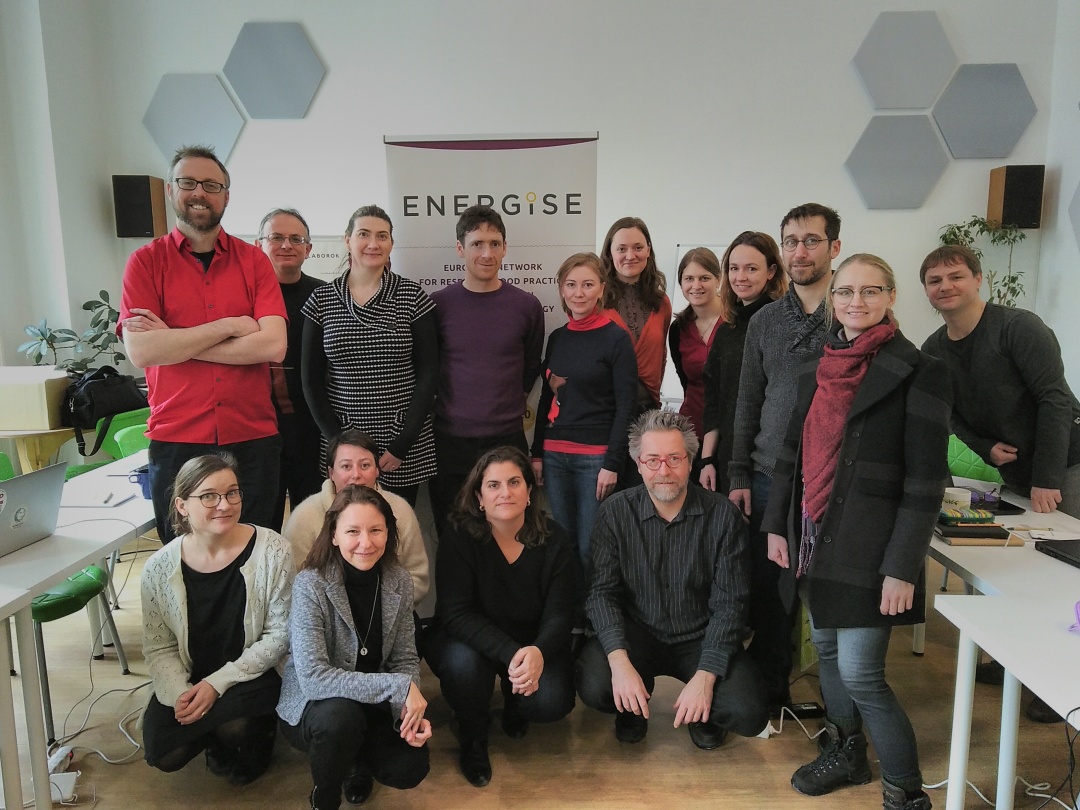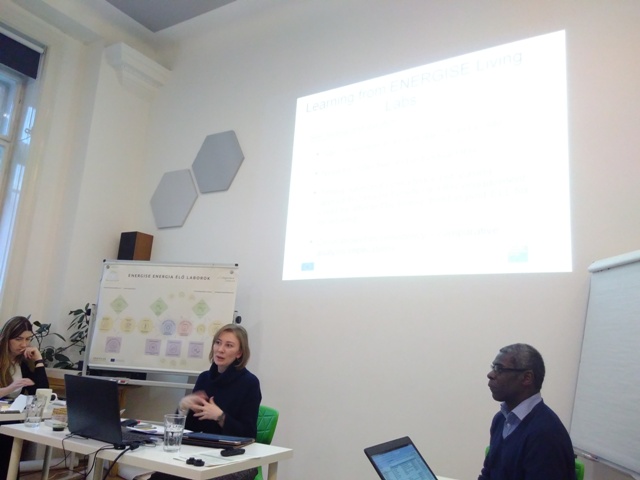
At the end of January 2019 the ENERGISE team met in Budapest to share experiences related to ENERGISE Living Lab (ELL) implementation, discuss and evaluate the process, and plan the next steps of the work.
Considering local implementation experience in 8 countries, the ENERGISE team discussed the Living Lab methodology and process with particular attention to what we would do the same and differently in a future living lab. The outcomes of our discussion are summarized partly in our recently published deliverable "Online tools and user community for scaling up ENERGISE Living Labs", and partly in our upcoming deliverable on "ENERGISE Living Labs: methodology, experience and lessons learnt".
We also discussed our plans for local final ELL events, and how we could make them inclusive and interesting for ELL participants as well as our stakeholders, which outcomes we should be communicating and how, and how we could make the organization of the events themselves reflect the principles of sustainable energy use. The organization of ELL final events is ongoing, but you can already read about the final event in the UK and in Hungary on the ENERGISE website.
The discussion and planning of dissemination activities as well as the integration of the ELL findings into policies were also on the agenda. The outcomes of our discussion of policy implications are presented in various ENERGISE deliverables, among others a policy briefing on "Guidelines for developing and implementing national and local energy consumption interventions".

In order to "walk the talk", just like with other ENERGISE meetings, the local host, GreenDependent organized the meeting in a way to leave the smallest footprint possible. Thus, the meeting location selected (the Budapest Impact Hub) was easy to reach by public transport, seasonal and local, and where possible organic food was served, mugs and glasses were re-used , no throw-away plates and cutlery were used, etc. And to account for the carbon footprint, they calculated it and organized its offsetting with the involvement of the Hungarian ELL participants.
Edina Vadovics, GreenDependent Institute